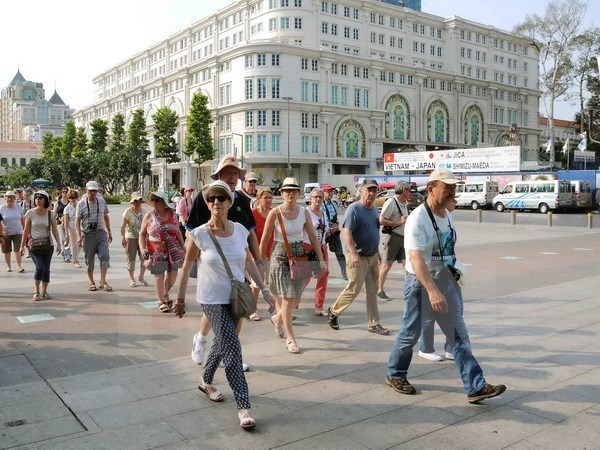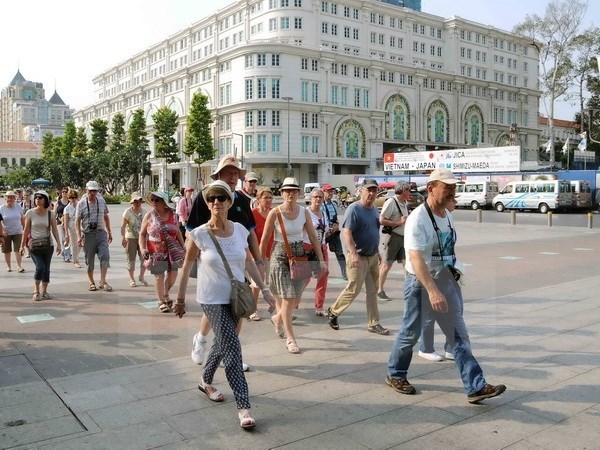
More than 2.86 million foreigners was estimated to visit Vietnam in January and February, up 29.7 percent from the same period in 2017.

Illustrative photo (Source: VNA)
According to the General Statistics Office of Vietnam, Asian
visitors made up the lion’s share of the number, at over 2.12 million people,
increasing 35.8 percent year on year. The number of Chinese visitors, which
accounted for 30 percent of the total tourist arrivals in Vietnam during the
period, grew by 38.5 percent annually.
The numbers of tourist arrivals by air, road, and sea during the two-month
period recorded respective annual increases of 26.3, 58.4, and 3.5 percent.
The Vietnam National Administration of Tourism said it aims to serve between 15
and 17 million foreigners and 78 million domestic travellers this year, with
total revenue expected to hit 620 trillion VND (27.28 billion USD), up 21.35
percent on year.
Vu The Binh, Vice Chairman of the Vietnam Tourism Association, said Northeast
Asia, including China, the Republic of Korea (RoK), Japan, Taiwan (China), will
continue to be the major sources of tourists to Vietnam. Last year, China and
the RoK sent 4 and 2.4 million visitors to Vietnam.
With a growth of 30 percent in tourism in 2017, Vietnam for the first time came
on the list of countries with fastest tourism growth speed in the world,
ranking at the 6th place.
Source: VNA
A diverse chain of eco-tourism and resort destinations concentrated in Hoa Binh city and the districts of Tan Lac, Da Bac, and Luong Son… Along with the launch of several key high-quality resort tourism projects, these developments have reshaped the landscape and enhanced the appeal of Hoa Binh as a travel destination.
Boasting diverse terrain, a mild climate, and rich natural resources, Cao Phong district is increasingly asserting its place on Vietnam’s tourism map, attracting both domestic and foreign visitors. The district is renowned for its stunning landscapes, majestic mountains, a crystal-clear hydropower lake, and the unique cultural identity of local ethnic groups.
With its pristine landscapes, unique cultural heritage of Muong ethnic minority, and an expanding range of visitor experiences, Tan Lac district of Hoa Binh has fast become a captivating destination for both domestic and international tourists.
Until now, Sung village in Cao Son commune, Da Bac district remains the only Dao ethnic community in Hoa Binh province to develop a community-based tourism model. Beyond its untouched natural landscapes, cultural identity serves as the cornerstone attraction for visitors.
Alongside the diverse cultural identities of the Kinh, Muong, Tay, Thai, Dao, and Mong ethnic people, Hoa Binh province is also renowned as the "capital" of the northwestern Vietnamese cuisine, offering unique and distinctive dishes. At festivals, during Lunar New Year (Tet), or on significant family or community occasions, special dishes are prepared, leaving a lasting impression on visitors.
A Phong Linh (Yellow Tabebuia) flower garden in Thang village, Thach Yen commune, Cao Phong district is currently in full bloom, drawing a large number of visitors.



